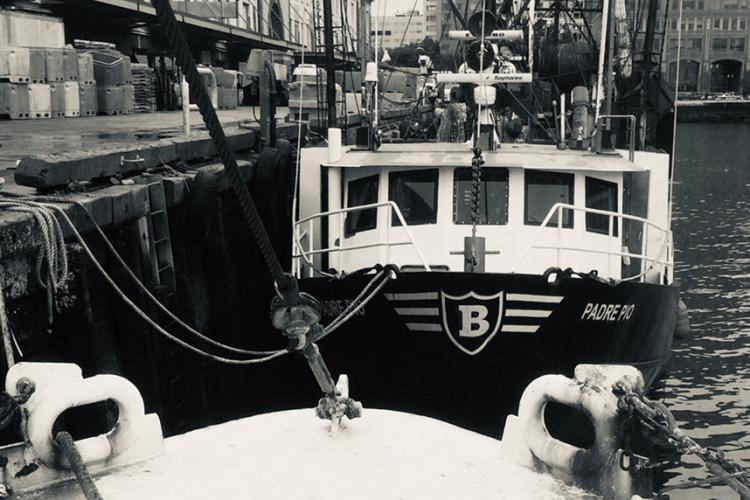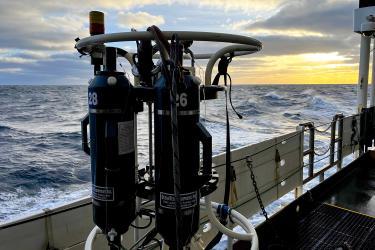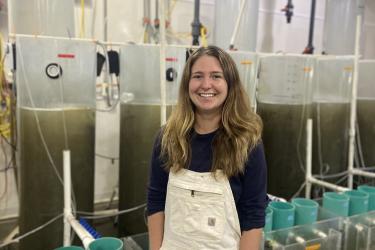My name is Julaina Bennett and I’m a fisheries observer. I grew up in a small town in Ohio and graduated from the Ohio State University with a Bachelor of Science in zoology. Currently, I live in New Bedford, Massachusetts, and observe mostly out of Massachusetts and Rhode Island ports. I have been observing for a little over a year and have been certified to cover trawl and gillnet boats as a part of the Northeast Fisheries Observer Program and At-Sea Monitoring Program and clam dredge boats. Observing is a great way to get field experience and learn about an incredible way of life.
When I began college, I never figured I'd work in marine science. I always wanted to be like Jane Goodall and work in the jungle. But in the back of my mind I really thought I would be one of the many who never actually used their degree. The summer before my last semester in college, I worked at Higher Ground Baptist Bible Camp in Sterling, Alaska. There I met a girl whose brother was a fisherman. Hearing her tell his stories made me think commercial fishing would be a fun and exciting thing to do after graduation.
Living in Ohio, I wasn't sure how to begin getting a job like that. So I searched a popular job-related search engine. The results were mostly for fisheries observers. I had never heard of fisheries observers, but the position seemed perfect for me since it combined the excitement of commercial fishing with science. And it gave me a cool answer to the never-ending question of “what are you going to do after college?”
Of course I didn't think I would actually get the job. To become an observer, you need to have marine science college credits or boat experience. I had never taken a marine science class before. I had taken a field environmental class with Stone Lab at Ohio State on the flagship Brig Niagara, a tall ship in Lake Erie. Much of this course includes sailing a tall ship, water sampling, and a general close-up on lake science and how ship-handling works. I signed up for the class because of the time it was offered. I didn't realize until a week or so before the class started that it was on a ship.
It was a pleasant surprise. I never thought it would help me start a career, but working and living on this tall ship gave me the experience needed to become a fisheries observer. So a month after graduation, I moved away from everyone I knew and settled into Massachusetts.
Observing requires flexibility in schedule and work style. Typically, I try to work longer trips, lasting 7 to 10 days. These are large- or small-mesh trawl trips, fishing for groundfish or squid. This way, I get to know the fishermen and have time to get comfortable on the boat, plus the ocean is beautiful at night and early morning.
While at sea, the fishermen and I work hard when working up hauls. Some tows can last for 6 to 8 hours, so there can be downtime.* I usually bring books—a favorite (in case I get homesick) and one I've always wanted to read, but never had the time. My last trip I brought Homer's Odyssey. It had very small print and the weather was rough. It made me seasick if I read more than a few pages at time, but I enjoyed it anyway.
*Fishing, like other jobs and careers, can have periods of downtime. Observers often fill it with data responsibilities, talking and connecting with the captain and crew, or other observer-related activities. But sometimes, to break things up, observers will read or watch media while gear is fishing, the vessel steams between fishing spots, or the vessel and gear undergo maintenance.
The COVID-19 emergency resulted in disruptions in NOAA Fisheries’ observer programs, but we remain able to place observers throughout the country. While it did take Northeast observers off the water, that should change in July.



